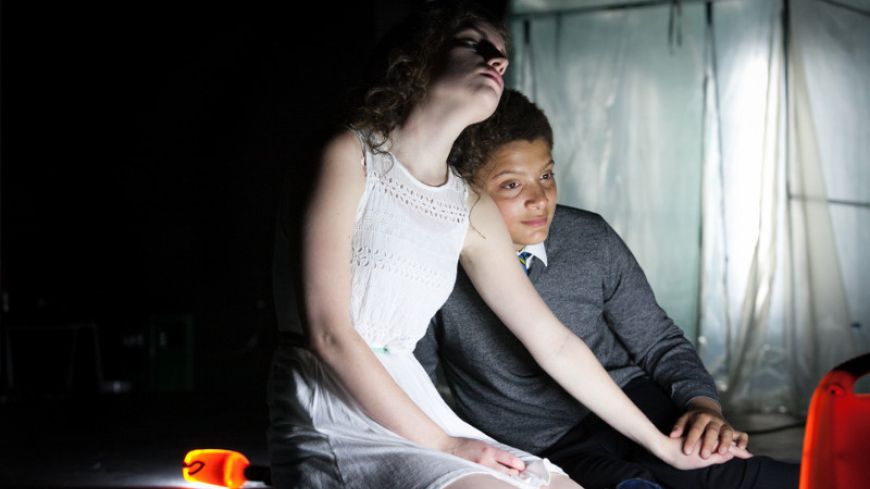
Many years ago, at the end of a play, a noted Scottish dramatist in the next seat muttered, ‘It’s just behaviour’, meaning that the play was, in his opinion, lacking in the classical structure he so admired, although his own plays exhibited very little of this.
Morning is equally a play of which it might be said that ‘It’s just behaviour’, although in this case of a particularly extreme variety.
Having written before, elsewhere on this site, that sometimes shows fail to get the reviewers they deserve, but that the opposite must also be the case, it’s a touch ironic to find the proposition revealed so clearly in the case of ‘Morning’.
It is, of course, always possible to miss something. The busy traffic of the Fringe ensures judgments can be faulty and subtlety missed. It might be the wiser course to give ‘Morning’ the benefit of artistic doubt, but the demanding deadline requires a rapid response.
A group of teenagers live out summer days. The mother of one is dying, her best friend is departing for unspecified further education; she attempts to set up her boyfriend with said best friend, he is killed by her during a slightly bizarre sex game.
During the entire playing time, a male character taps at a keyboard and stares at a computer screen. Is he indulging in virtual fantasy? Watching porn? Doing his homework? Seeking to improve the plot? We never discover.
Later in the play, it appears the girl who has killed her boyfriend may have connived in the death of her terminally ill mother. The boyfriend’s body finally discovered, the net closes in. We are offered a final speech of justification based on the nihilism of the present. That's it, folks.
‘Morning’ has the reek of improv about it. Its slight storyline never rises above a ‘what if?’ scenario that fails to deliver. It appears to have no expectations and demands minimal involvement from any audience. This last may be deliberate, but causes this reviewer to question what premise may have been on the minds of those involved in setting up a co-production with Basle’s JungTheater.
The play also feels, like the work of Irvine Welsh, to wallow in its own versions of stereotype, as unexamined as the prejudices it panders to. Like Welsh, one feels Stephens could do better for himself, if only he would refuse to rise to what appears to have been expected of him.
Show Times: varying (see Fringe programme for details), August 15-25
Ticket Prices: August 5, 7, 8, 9, 12, 14, 15, 16, 19 £18 (£13); August 10, 11, 17, 18 £20 (£15)

